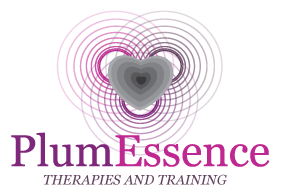This is the 8th in a series of blogs, using answers to pass Mental Health qualifications.
Stress can be useful and harmful
Useful
Eustress is stress that is good for you. Having some of pressure, good stress, can be a motivator, to help you achieve and succeed and bring you joy.
Harmful
When stress starts to affect you emotionally and/or physically, in a negative way, usually due to a build-up of pressures and stresses over a period of time, and the ability to cope well, reduces.
Examples of the symptoms of stress
Some symptoms of stress can include:
Crying,
Quick mood changes and variations,
Low mood
Headaches and migraines, and other unexplained aches and pains.
Loss of, or gain, in appetite, usually not eating the correct foods.
Reliance on self-medication or alcohol,
Increase in heart rate and blood pressure,
Digestive concerns and problems,
Inability to sleep well resulting in fatigue and irritability,
Although many people can described themselves as stressed with one thing going on, it is often more than one cause and symptom of stress that starts to become a concern to an individual. Briefly describing a personal situation when I felt under stress and how I felt as a result of this situation.
Just over 10 years ago was probably the 2nd most stressful time of my life.
I was completing my Accounting post-grad qualifications, I was being harassed at work, I was suffering debilitating migraines and I was constantly unwell (which I know now were probably stress-related).
My dad was terminally ill and I lived 4 hours’ drive away making it difficult to see him. My marriage was in trouble and then, 2 weeks before my accounting exams, my dad died. I now realise I went into some fort of ‘zombie mode’. I was getting through each day feeling ‘dead’. I couldn’t experience joy or grief, which naturally other people didn’t understand, causing me more grief. To this day, I wonder how I got through it. It’s fair to say, I could have coped quite well with all of these things, one at a time, but with them all together it all became too much. I became very unwell myself, very unwell, resulting in my complete marriage breakdown and me walking out on my incredibly stressful job (although that is something I do not regret).
Feelings that people commonly experience when subjected to stress.
Comparing some of my own feelings above, I felt helpless over many of the situations.
I felt positive about my exams because I knew I had studied hard and knew I felt the pressure as a motivator.
However, some of the other situations I felt inadequate, I felt ugly and useless, and I felt weak and incompetent in my role and fearful of what I could do without my job.
I definitely felt I had nothing to look forward too and I know I sank lower into depression with no interest in life. But, at the same time, I felt angry and irritable, which caused further conflict and further problems, which made everything worse still.
How stress can affect an individual.
Short-term stress can cause short-term anxiety and physical symptoms like ‘butterflies in the stomach’, feeling sweaty and clammy, digestive problems and increased heart rate. All these can be positive signs but when these symptoms continue over a period of time, they can cause more problems.
Constant digestive problems can cause long-term damage.
Short term heart rate increased could exaggerate into palpitations and irregular heart problems and blood pressure problems.
Headaches and migraines can become daily, as with other aches and pains, leading to taking regular painkillers, of which the side effects can cause more physical problems, and so the cycle continues.
What internal and external demands in life may result in stress?
Internal
Internal factors could include how we choose to live and think, as whole.
Having a negative mind-set will result in stress, especially with constant worrying or having anxiety about things of which someone has no control.
Not eating and drinking well, and ‘choosing’ to eat a poor diet, taking drugs or drinking alcohol could all be considered to be internal stressors as they are generally something someone can control if they choose.
Having an illness or disability could be considered an internal stressor, especially if it is one which is impeding on quality of life in some way.
Not actively seeking help and respite from the internal stressors could be considered a choice and something over which someone has control.
External
External demands could be to do with the environment in which someone lives. Stressful living conditions could mean someone cannot relax and calm down, whether that’s the person’s own household, poor living conditions for instance.
Other environmental external factors could even be to do with living in a polluted atmosphere, or suffering regular outside noise such as living near busy motorways or flight paths.
The demands of a job could be considered to be an external factor, but so could not having the ability to work, or be able to find work.
Having poor access to adequate healthcare could be considered to be an external factor.
Tracey of PlumEssence Therapies and Training is a qualified stress management consultant, mental health first aider, hypnotherapist and body work therapist focusing on helping reduce and alleviate concerns connected to both physical and emotional pain. Tracey is also a teacher and trainer, delivering workshops related to stress and stress-related subjects and delivers accredited mental health courses.
Tracey is available for a no-obligation chat to see how we could work together on 01889 808388 or tracey@plumessencetherapies.co.uk
